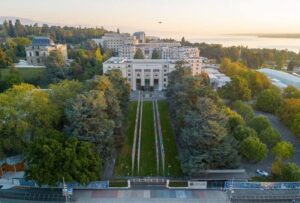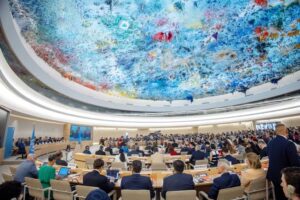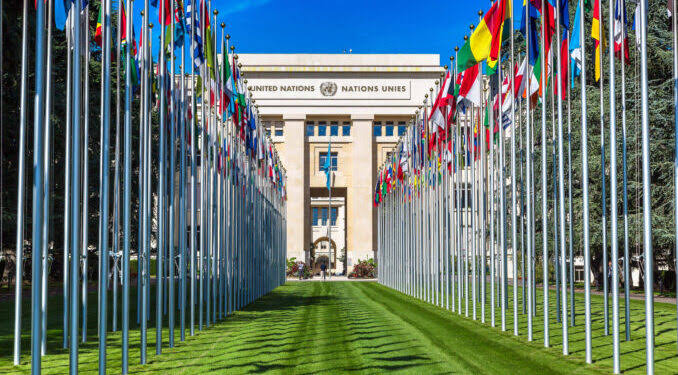Morocco secured victory in a contentious vote to lead the United Nations Human Rights Council, defeating South Africa in a heated showdown. Ambassador Omar Zniber, Morocco’s candidate, garnered 30 votes in a secret ballot held in Geneva, while his South African opponent, Ambassador Mxolisi Nkosi, received 17 votes.

The lead-up to the vote saw a public dispute within the African group, which typically aims for collective decision-making. Nkosi, expressing concerns to Reuters, criticized Morocco’s human rights record, asserting that it contradicted the principles upheld by the council and could compromise its credibility.
Morocco, in response, accused South Africa and certain African states of obstructing its candidacy, characterizing the move as an attempt to undermine its efforts for the prestigious but mostly symbolic position. The Kingdom emphasized the global trust and credibility it garnered despite opposition from Algeria and South Africa.
Also, read; Angela Bassett Honored with Honorary Oscar After 40 Years in Acting
The dispute revolves, in part, around Morocco’s sovereignty claim over Western Sahara, where the Algeria-backed Polisario Front seeks independence. Despite denying allegations of rights abuses, Morocco’s foreign policy has involved seeking support from countries, including African neighbors, for its stance on the former Spanish territory.

While Morocco’s victory marks a rare public dispute within the African group, human rights advocates stress the importance of safeguarding human rights in the new leadership role. Tess McEvoy, Co-Director of the New York office of the International Service for Human Rights, urges Morocco to refrain from intimidating or retaliating against human rights defenders engaging with the U.N.
As the leader of the 47-member council, Morocco’s actions will face increased scrutiny, and it will have the authority to authorize probes into human rights violations globally. The outcome of this leadership contest adds complexity to the ongoing discourse surrounding human rights and territorial disputes, emphasizing the delicate balance required in global governance.

